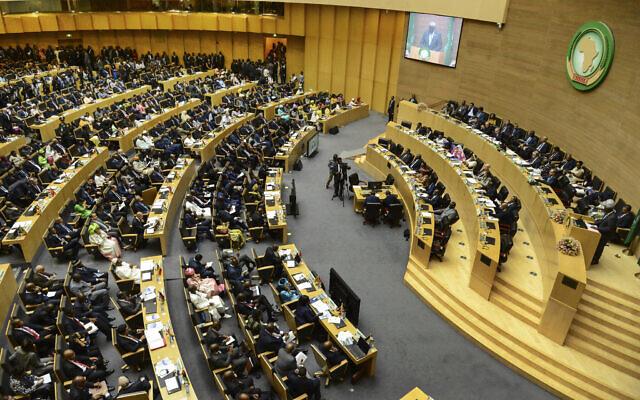As Africa celebrates its 61st Anniversary Sudan’s steadfast solidarity with the African liberation struggle faces unexpected betrayal (1)
By; Mohammed Ahmed Adam

As Africa celebrates its 61st Anniversary
Sudan’s steadfast solidarity with the African liberation struggle faces unexpected betrayal (1
By; Mohammed Ahmed Ada
Whereas the founding fathers and independence in Africa, were all outright in manifesting their respect and gratefulness for Sudan’s benevolence, generosity and dedication towards the struggle of many African Liberation Movements and independence in Africa, however, a new breed of African leaders, around the Sudan, seemed to have betrayed the wills and veered off the legacy of the founding fathers, joining hands and actually plotting against Sudan’s sovereignty and territorial integrity, with the very enemies of African stability and prosperity and genuine independence.
Perhaps the ugliest manifestation of the rebel militia’s coup d’ etat, against the Sudanese national Army on April15th 2023, as it clearly demonstrates how even regional powers and some neighboring countries – wrongly treasured for rainy days- just like the continent’s open enemies, harbor that much of evil; fanning conflict flames in the Sudan, in an attempt to cut off, part of its resources and wealth.
As we celebrate Africa Day, which marks the anniversary of the founding of the Organization of African Unity (OAU) on 25 May 1963, which subsequently became the “African Union”, it is pertinent to review some aspects of Sudan’s pioneering and nationalistic positions in support of many African liberation movements, fighting for independence. In fact, Sudan contributions have been highlighted in the African Solidarity Register. How Sudan has mobilized and aligned all its expertise and resources, in support of sisterly liberation movements in Angola, Mozambique, Namibia, South Africa and Zimbabwe. Such support was multi- faceted, including unequivocal and courageous diplomatic positions, at both African and international fora. History records that Sudan has actually hosted hundreds of freedom fighters on its territories, guaranteed them free and dignified life, in preparation for their future tasks, in their respective home countries.
As a matter of fact, Sudan’s support took different facets; including not only hosting on its soil, hundreds of African freedom fighters, but also offering them educational opportunities at Sudan’s higher education institutions, That might explain why the capital city of Khartoum, during sixties and early seventies, has turned into, an important hub and congregation, a beehive for many youth and leaders of the national liberation movements in Africa, including but not limited to, Hastings Kamuzu Banda, Robert Mogabe, Kenneth Kaunda, Tom Moboya, Milton Obote, and Julius Nyerere.
In his book ” the long Walk to freedom ” Mandala comments on his historical extensive meeting with Sudan’s president Ibrahim Aboud and his senior officials in Khartoum “We had talked to General Abboud, as if we were talking to a senior leader at The African National Congress (ANC), the financial assistance he provided us with, was the first of its kind, received from an African country”
The late Ambassador Khalifa Abbas immortalizes and features in his memoir, the words of Emperor Haile Selassie to him, as he was a presenting his credentials, as an Ambassador of the Sudan to Ethiopia; how the Emperor, unlike his predecessors at the ceremony, stepped off the platform, to fervently shaking my hands, in an apparent tribute to the Sudan, raising his voice in “Amharic” whilst the Minister of his Palace was translating in English: – “The Sudan is the country that accorded me shelter and refuge in my times of distress and tribulation, hurried to support us during our ordeal. Sudan, thanks to its efforts, blood and sacrifices, my empire has been restored. How could we return Sudan’s favors?’’.
The emperor was referring to was Sudan’s solidarity with the people in East Africa; History records with gratitude that when the War broke out, the Sudanese troops, stood poised to play the most honorable role in defeating the Italy’s fascist army in East Africa. The battles and the blood of martyrs of the Sudanese battalions, which watered the heights of Ansba and Karen, are to date immortalized and chanted in a quite number of folk songs in the Sudan. What further distinguished the crowed of the Sudanese battalions entering Asmara at that time, alongside the British forces; they were escorted by Sudanese teachers, engineers, nurses, musicians, singers and artisans; t heal the wounded, open schools and build channels and roads. In brief, to restore anew, the pulse of life in that dear part of Africa.
Actions speak louder than words, Sudan’s position towards African liberation movements, was distinctively marked by courageous initiatives; For instance, in a prompt interaction with the call to boycott the apartheid regime in South Africa, its immediate supporters and benefactors: Sudan was the first African country to come forth to translate that proposal into actin; during the 1964 session of the African Summit in Addis Ababa, Sudan made it public, its firm commitment to close down its air space and sea shores, in the face of air and sea navigation to and fro, the Apartheid regime in South Africa; to that effect Sudan actually prevented the British Airways from overflying, landing or refueling at Khartoum Airport.
Interestingly, these revolutionary movements have benefited from the Sudanese Army’s cumulative expertise and its operational savvy; perhaps one of the remarkable memories of the Sudanese military support to Namibia’s freedom fighters for instance, tells that upon the latter’s request, Sudan supplied them with a number of donkeys, for ferrying their military supplies in between Namibia’s rough natural terrain. Sincere thanks, should be accorded here, to the important contribution of Sudanese veterinary doctors at that time, who had come up with an unprecedented trick, having surgically removed the said donkeys’ vocal cords, out of the fear that their voices could unexpectedly attract attention, and thereby, jeopardize the very confidentiality of such operations.
Perhaps one of the prominent testimonies that highlights Sudan’s role in this respect, was the one made by the late Angolan President Augustino Neto, who led the liberation movement to the independence of Angola. In his speech before the African Summit held in Khartoum in 1978, reviewing Sudan’s role in their long struggle against the Portuguese colonizers, Neto said ‘’I do not need to be reminded of Sudan’s assistance to the liberation movement fighters in Angola and other African countries, it suffices me to say that all members of the army staff who now ruling in Angola, have received their respective training in the Sudanese Military College’’.




